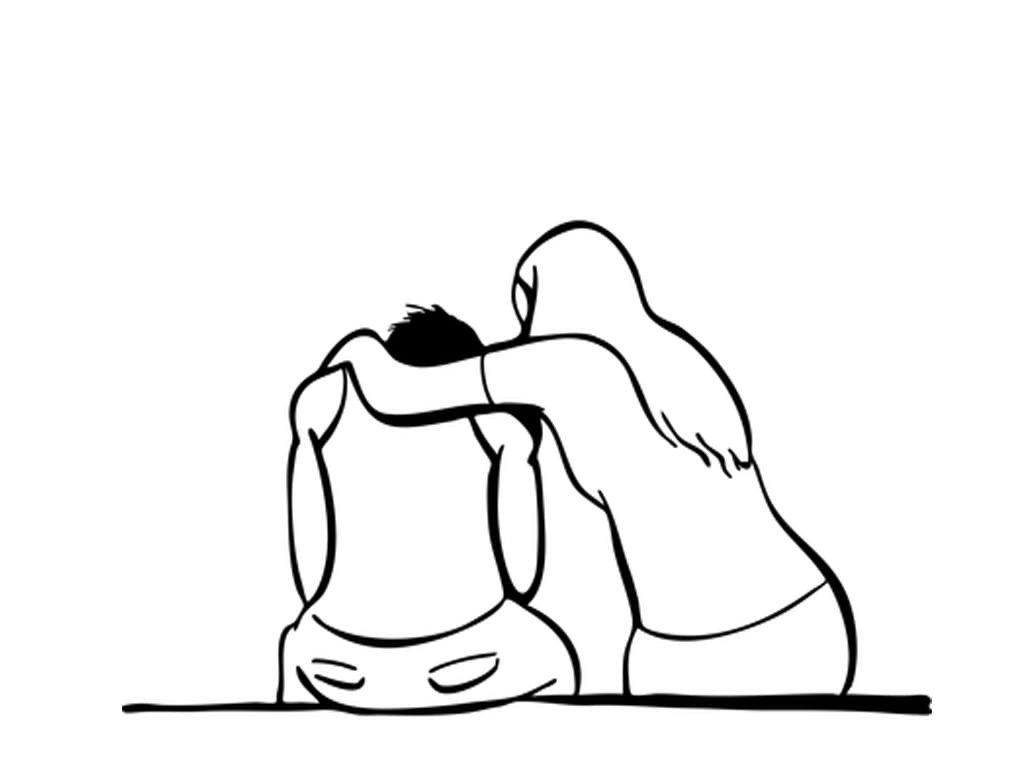How to Help a Loved One Who Is Depressed
Help your beloved to get ride from depression

Converse with various experts, clinical, look into, anthropological, biochemical, and mental, and you'll find various solutions about what causes discouragement. Indeed, even the "compound unevenness" hypothesis is suspect, despite the fact that it's the most widely recognized, in light of the fact that exploration currently shows that cerebrum science can be affected by evolving thinking, conduct and mindfulness; which makes it a "which starts things out" question.
It's normal for individuals to state they are "discouraged" when they're overpowered or disturbed, however evident clinical melancholy is an alternate condition. It enters cycles, regularly occasional, and has explicit triggers. Some downturn, similar to Post-Partum (in the wake of conceiving an offspring) Depression are halfway situational (brought about by feeling overpowered by the obligations of parenthood, worry of losing rest, and so on.) and hormonal (an aftereffect of hormonal changes.) Estimates of how predominant sadness is differ generally, and the meaning of which individuals are viewed as discouraged likewise shifts a great deal.
Any circumstance where the desires are ridiculous can be viewed as a ""set up" for frustration, which a few people understanding as wretchedness. In the event that there's a hidden conviction that "I don't merit bliss" at that point the normal challenges of building up another relationship after marriage will be viewed as catastrophes, and gloom can result.
Most couples experience a failure and stress that their relationship won't work. Regardless of whether they respond to that failure by going into melancholy is reliant on the person.
Men all the more regularly respond to troublesome beneficial encounters by getting discouraged, in light of the fact that they are less open to communicating their sentiments, so their mistake and hurt gets compacted into a sad, discouraged inclination. Men are likewise increasingly inclined to sadness and other state of mind issue, somewhat in light of the fact that they attempt to "extreme it out" are less inclined to have or use the help of loved ones.
Ladies are bound to have a hormonal part to their downturn, which can cycle with the menstrual cycle. Ladies will communicate their feelings more, have loved ones to converse with, and accordingly regularly fight off misery.
I would say, I find that the propensity to become discouraged is to a great extent an aftereffect of an educated conduct and conviction framework that is centered around sadness. In my office, individuals who are discouraged regularly express misery and an inclination that they can't be accountable for their own lives. At the point when that conviction framework changes, there is no longer sorrow. There is additionally a recurrent nature to wretchedness, which could be a consequence of hereditary qualities, yet nobody knows without a doubt. Situational misery is experienced when individuals are profoundly harmed, baffled, or have encountered an extraordinary misfortune or disastrous circumstance. This sort of despondency is bit by bit worked through and can be survived. Manifestations of despondency incorporate having no vitality, maybe not ready to get up, pulling back, evasion of closeness, absence of correspondence and feeling miserable and powerless to tackle life issues. Yet, may individuals prop up through it buckling down, yet carrying on with a boring, void inclination life.
Studies show that downturn reacts best to a mix of antidepressants and intellectual/social treatment. In the event that the downturn is serious, in-persistent treatment in an office that gives social molding is the best. On the off chance that you think somebody you love is discouraged, don't attempt to make a finding. You can call attention to whatever conduct you're seeing and state "I see that you're crying a ton (or dozing excessively, hanging out or reluctant to talk) and I feel that shows an issue. Will you come to guiding with me?" If cherished one will go to advising with you, the specialist will have the option to analyze the downturn and make proposals; without making the person in question feel scrutinized, as the individual in question would on the off chance that you said it was sadness. Guiding will likewise assist you with taking care of circumstances all the more viably, and help you not make more show and brokenness in the relationship.
Americans will in general search for the handy solution. It appears to be simpler to take a pill than to take care of the issue. Be that as it may, the reactions of antidepressants are serious stuff. Research shows that the best treatment for despondency is Cognitive Behavioral Therapy, in blend with mellow antidepressants. The medications don't fix the downturn; they lift state of mind to make it all the more simple to determine the intense subject matters.
Despondency is inwardly, just as truly, wearing on the harassed individual, however on companion and family too. Here a couple of numerous means you can do to enable your adored one to endure and flourish.
The most effective method to Help a Loved One with Depression:
1. Comprehend the conclusion and what it implies Go with your adored one clinical to arrangements, so you'll comprehend what the specialist says. A discouraged individual may not totally comprehend what the specialist says. For additional help, look online for specific vested parties concentrated on the ailment, for example, those supported by Mental Health America (MHA) or the Depression and Bipolar Support Alliance (DBSA) which are designed for addressing the requirements of those with discouragement. While sadness bolster bunches are not psychotherapy gatherings, they can give you a protected and tolerating spot to vent your disappointments and fears and get solace and support from others. You will gain so much from the individuals who are as of now experienced.
2. Help your adored one do what the Dr. says, however don't assume responsibility Managing sorrow is a major change, so help your adored one make sure to take medication, keep dr. arrangements, and do whatever activity, clinical at-home strategies, or other self-care forms. Be that as it may, ensure these things are as yet your adored one's obligation to do. Both of you will feel much improved in the event that you are steady, not parental.
3. Take excellent consideration of yourself. Dealing with a discouraged life partner is depleting, so you should take additional consideration of yourself, as well. Use whatever help is accessible from clinical protection, loved ones. Organize others to be accessible to offer you a reprieve, and don't feel terrible about going off all alone every now and then - you need it.
4. Keep your association, companionship or sentiment alive Find the same number of ways as you can to tell each other you care around each other. Anyway you may need to alter your social and cozy life, do it. Do whatever you can to keep your association alive inside the constraints of the disease. Have a fabulous time as you can, each possibility you get. Make it a test to find better approaches to appreciate one another, and to unwind and chuckle together.
My most up to date book, How To Be Happy Partners: Working It Out Together tells the best way to have effective discussions with your accomplice on troublesome subjects, and how to cooperate to help each other through passionate issues.





Comments
There are no comments for this story
Be the first to respond and start the conversation.